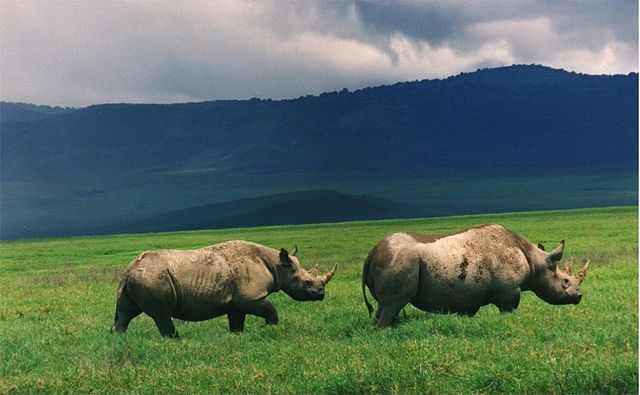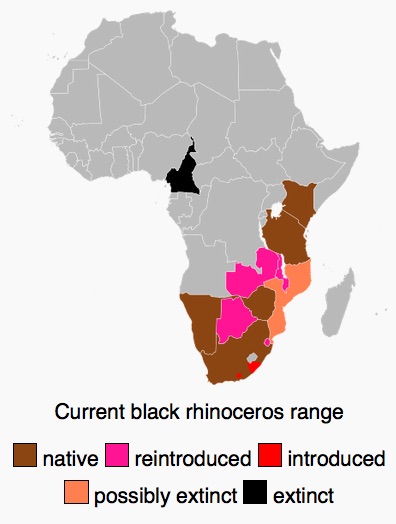By Paul Udoto
Kenya Wildlife Service
A joint Kenyan and Tanzanian security operation to track down killers of a black rhino in the Maasai Mara is underway.

This follows the discovery of a male rhino carcass with missing horns near Sand River barely 300 metres away the Kenya-Tanzania border by a Kenya Wildlife Service veterinary team conducting rhino ear-notching.

The ear-notching for monitoring rhino movements is being jointly done by KWS, Narok County and Tanzania National Parks (Tanapa).
Preliminary observations show that the rhino was “Temple” as identified by the Maasai Mara management. Its range covered both the Maasai Mara National Reserve and adjacent Serengeti National Park.
From the state of the carcass, the rhino is likely to have been killed on Friday and appeared to have come from the Serengeti side in Tanzania as indicated by the trail in the disturbed long grass.
The killed rhino is estimated to have been aged 15-20 years.
This occurrence in the Mara, the first this year across the country, is of great concern to Kenya Wildlife Service given the endangered status of the black rhino. Last year, Kenya lost 11 rhinos to poachers.
A multi-pronged strategy is being enforced to ensure poaching of endangered species is kept to the barest minimum.
At the same time, the existing cross-border framework between Kenya and Tanzania will be used to bring the culprits to book.
Paul Udoto
Kenya Wildlife Service
Image credits:
Black rhinos in Ngorongoro crater, Tanzania
By Brocken Inaglory, CC BY-SA 3.0, https://commons.wikimedia.org/w/index.php?curid=17769432
Current black rhinoceros range
By Edoarado – Base map derived from File:BlankMap-Africa.svg. Distribution data from File:Black Rhinoceros area.png, CC0, https://commons.wikimedia.org/w/index.php?curid=17313894

